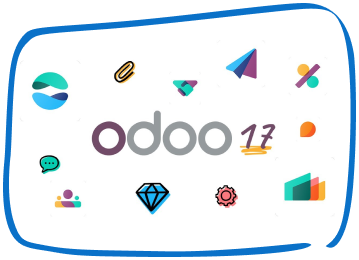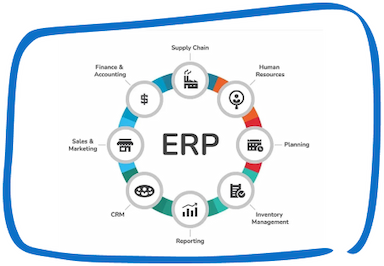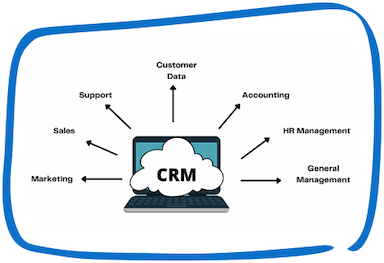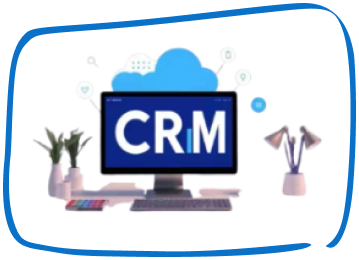As we peer into 2025, the digital revolution is accelerating to another level and emerging into the realm of Artificial Intelligence (AI). The accounting industry is currently experiencing a significant transformation amidst the hustle and bustle of today's fast-paced environment, with AI playing a crucial role in transforming the accounting industry, advancing efficiency and facilitating more profound insights. AI is becoming an essential tool for modern accounting practices.
AI has transformed from a futuristic concept to pivotal catalyst of transformation across various sectors. It involves replicating human intelligence in machines, enabling them to carry out functions as tasks such as learning, reasoning, problem-solving and decision-making.
Let’s delve into and exchange insights in the most advanced automated accounting software solutions for 2025.
Accounting Software
Accounting software is a software application designed to help bookkeepers and accountants in recording and reporting the day-to-day financial transactions. Different organizations have diverse accounting software requirements.
Streamline Your Accounting Process
Simplify complex accounting tasks with cutting-edge automation. Save time, reduce errors, and focus on growing your business with advanced accounting software like QuickBooks.
- This tool helps the accounting calculations easier to perform, understand and analyze.
- It requires less office space as it makes the use of physical data obsolete.
- Helps in retrieving the old data which helps in internal external audit
The software includes SAP, Microsoft, Oracle, and Intuit.
Types of accounting software’s:
- Spreadsheets
- Commercial accounting software
- Enterprise accounting software
- Custom accounting software
Spreadsheets: Mainly used by small companies that don’t work with complex transactions and operations.
Commercial accounting software: Midsized companies typically use them for business accounting needs. It usually includes graphs that summarize data and reports that provide an overall view of the company’s financial status.
Enterprise accounting software: This software often uses big data and AI to drive insights and make forecasts.
Custom accounting software: Certain companies, in the course of their business operations, occasionally take the initiative to create and develop their accounting software.
The ability to effortlessly access accounting information through accounting software makes it easier to complete audits. Manual booking and audits are quickly becoming outdated as AI tools take over repetitive tasks. This software helps in detailed financial transaction tracking and instant report and analysis.
Future landscape of Accounting
AI has a wide range of applications in accounting namely Data analysis, fraud detection, pricing analysis, forecasting, auditing, business communications, AI-assisted scenario generation for strategic planning, business intelligence and decision making. When AI is utilized effectively, it offers numerous advantages.
ERP System & ERP Software Solution – What is the difference?
An ERP system is robust software designed to streamline business operations and workflows of any information, reporting and data analytics in intricate businesses.
Empower Your Business with ERP Solutions
Gain real-time insights, optimize workflows, and manage your operations seamlessly with our comprehensive ERP software tailored for businesses of all sizes.
- Helps to improve the business performance, especially accounting, making it more systematic.
ERP software solution is a business management software system that is designed for large companies with complex financial needs.
- Requires the proper feeding of data, helps to track tangible and intangible assets and materials.
ERP Software Solution
In the early 1990s, ERP and software system was termed by Gartner where he designed to manage various business operations into one integrated system, from accounting, HR and payroll, inventory, warehousing, to supply chain management and procurement. It connects and shares one common database, therefore decreasing the number of resources necessary to run the business end-to-end.
Simplify HR Management with HRMS
Automate employee data, payroll, and attendance tracking with our powerful HRMS software. Save time and ensure accuracy in all HR processes.
Some common features of ERP software, categorized by their use:
- Financial Management: Tax management, general ledger maintenance, financial reporting, and transaction data management.
- Inventory Optimization: Inventory tracking, automation of inventory management, and integration of shipping processes.
- Order Management: Invoicing, detailed reporting, secure payment processing, order tracking, and validation.
- Supply Chain Efficiency: Access to production data, demand analysis tools, and mobile device tracking capabilities.
- Marketing and Sales Support: Effective client communication tools, accurate forecasting options, and organized workflow management features.
By implementing an ERP system, data gathered by one department can be easily accessed by any other department in real-time.
There are four types of ERP software deployments: Software as a service, also known as on-site ERP, cloud-based ERP, a hybrid model, and Muticloud. Each software varies from the others comes with its own set of pros and cons, and is tailored to meet specific business requirements and ERP strategies. The most common ERP system is Muticloud ERP. (Including more than one cloud-based system integrated with the ERP) It is widely adopted example of integration-enhanced ERP system used by organizations embracing modern technology.
Bookkeeping
Bookkeeping involves recording and tracking the financial transactions of any business daily. Efficient recording and organizing of financial transactions guarantee that the accuracy and timeliness of each transaction is recorded.
Bookkeeping involves four basic steps:
- Conducting a thorough analysis of financial transactions and categorizing them into designated accounts.
- Recording transactions in ledger accounts
- Making necessary adjustments to entries after each accounting period.
- Creating initial journal entries that appropriately credit and debit the relevant accounts.
In recent years, manual bookkeeping has been largely replaced by online bookkeeping using specialized accounting and bookkeeping software like QuickBooks.
Upgrade to QuickBooks for Smart Accounting
Manage your finances effortlessly with QuickBooks. From invoicing to payroll, experience the efficiency of one of the best accounting tools designed for your success.
Wrapping Up
At penieltech we provide top-notch service for ERP software in UAE and Oman which is designed to fuel your business growth and streamline operations across sales, inventory, accounting, HR, CRM, payroll, manufacturing and much more.
We offer the following services as well: QuickBooks Online, QuickBooks Hosting, Tally Prime, Odoo, ERPNext, Sage.
Every business is unique, so carefully consider your business needs and make the right decisions by reach out to us at Penieltech.com for expert guidance.
FAQs on Automation Revolutionizing Accounting Practices in 2025
- What can we anticipate in the near future regarding the advancements in AI and automation in the UAE?
Artificial Intelligence (AI) involves the emulation of human intelligence processes through machines, particularly computers. AI and automation are not only just reshaping industries worldwide but are significantly altering the accounting practices within the UAE. Soon, the UAE will be driven at its best in advanced AI and automation technologies by serving small to large organizations with new opportunities to shape their future.
- What are the accounting standards in the UAE?
International Financial Reporting Standards (IFRS) is the only accounting standard accepted for financial reporting purposes in the UAE.
- What financial records must businesses maintain in order to comply with UAE regulations?
In accordance with UAE regulation, Businesses are required to uphold financial records, which include:
- Accounting software
- Financial statements
- Payroll records
- Bank statements
Speak with Our Team!
4.9 Stars
1k+ reviews on






